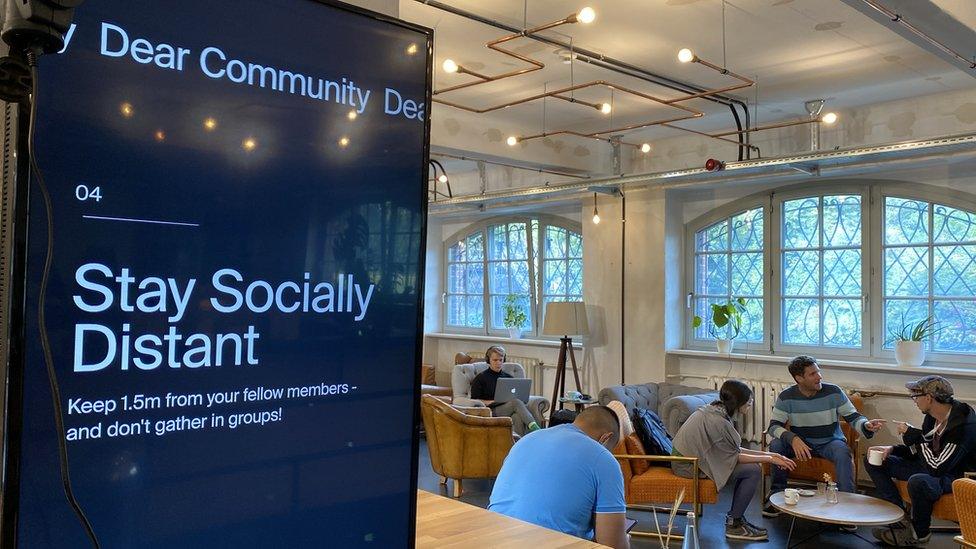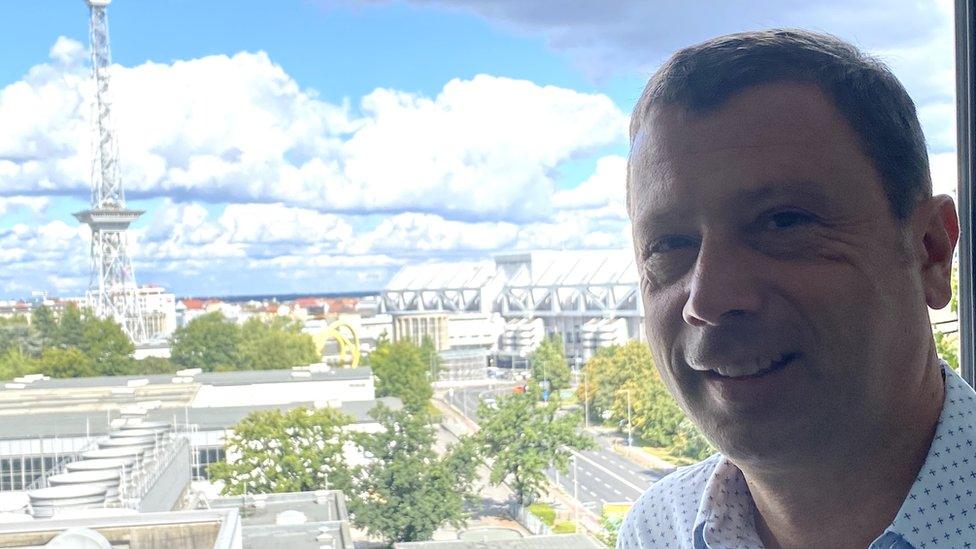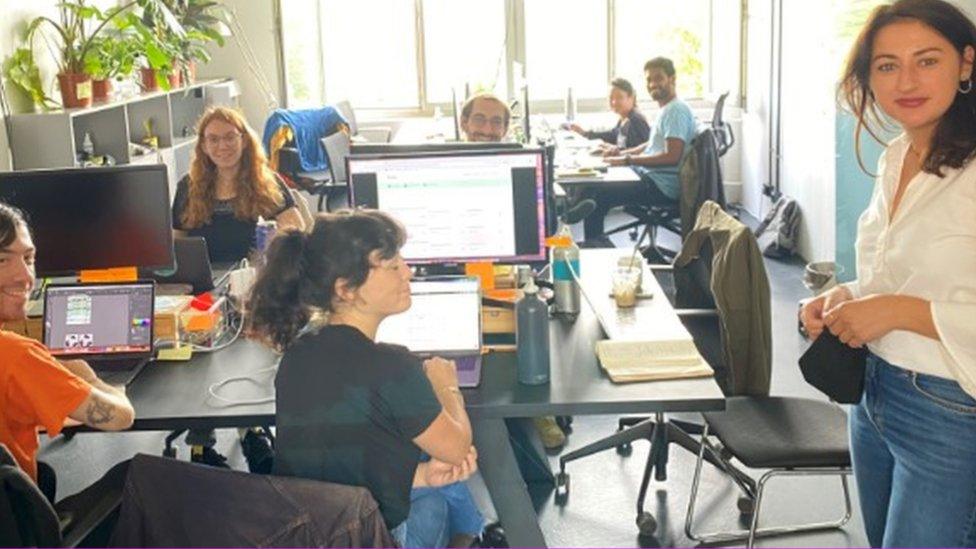Tech Tent - Berlin’s tech revival
- Published

If one major country in Europe has done particularly well in the battle against Covid-19 it is Germany.
Now its tech industry appears to be emerging from lockdown more rapidly than others and on this week's Tech Tent we assess what it can tell us about the new normal.


I have just returned to London from a five-day trip to Berlin, a city which felt far closer to normality than anywhere I have been in the last six months.
The streets were busy, as were the restaurants - without a reservation, we were turned away from one popular place. Most people seemed to be scrupulous about wearing a face covering on public transport and in places such as museums, and, while they were a little quieter than normal, I still had to stand on a couple of S-Bahn trains.
When I emerged at the Berliner Messe, the giant fairground in the west of the city which hosts the annual IFA show in early September, it was however, deathly quiet. But I had come to see the show's director Jens Heithecker after what, in the circumstances, had been a triumph.
A real live IFA had happened, albeit on a tiny scale and only lasting three days with a handful of exhibitors and no opportunity for the general public to come and see the gadgets.
"I feel sad because I miss all the public, all the huge number of attendees coming together," admitted Mr Heithecker.

IFA show director Jens Heithecker had managed to stage the event
But he said he also felt proud that they had managed to stage even a limited show when every other event had been cancelled and even next year's CES in Las Vegas had opted to go virtual.
"We have seen many other shows who tried to do it only virtually and the impact of the shows was much lower than ours. And we saw the joy in the eyes of our attendees when they met for the first time here again."
Now he is hoping that in September 2021 a full strength IFA with more than 200,000 visitors will be back.
Across the city, close to where the wall which divided East and West used to stand, I found similar optimism at a start-up space called Factory Berlin.
Signs at the door stressed the need for face masks while moving around the building, and that unscheduled guests were not permitted to visit, but in the cafe there was the hum of conversation among a clutch of young entrepreneurs.
Catherine Bischoff, chief relationship officer for Factory Berlin, explained that this place had never quite closed down in the dark days of March and April. At least one major London co-working space closed its doors never to reopen.
While many of the one thousand people who used this place before the pandemic were still working remotely, a significant minority had returned.

Plan A at Factory Berlin
"The space is important because so many serendipitous things happen here. And, again, as you try to scale your company, or pivot your company, it's quite important to be surrounded by other people that can help you through this extremely daunting time," she said.
Upstairs, I found the small team behind Vyking, a start-up making an augmented reality app which allows you to see how a pair of shoes will look on your feet, chatting across their desks.
I told co-founder Matthew Klimpke that I was envious as I was getting weary of endless Zoom calls with colleagues - but he said Zoom was great for talking to investors and customers. "We've got the best of both worlds," he said.
A bigger team from a climate science data consultancy Plan A occupied a whole office.
This company's founder Lubomila Jordanova said the pandemic had forced them to change focus, targeting big corporate customers instead of small businesses but that had proved positive and the workforce had more than doubled.
Once the German authorities had loosened the regulations they had been eager to get together again.
"We felt quite comfortable going back to the office because it really increases productivity, and it helps us collaborate better. And it also is a way for us to kind of engage after having had four months of working from home," she said.
It was all quite a contrast to the atmosphere back in the UK, where many still seem reluctant, even afraid to return to the office.
New normal
Perhaps that is because Germany has had a less frightening experience with the virus, with around 9,500 deaths attributed to Covid-19 compared with more than 41,000 in the UK.
Nobody I met in Berlin was quite sure why Germany had done so well in controlling the virus and most were still cautious about the continuing threat from the pandemic.
But there was still a sense that a return to some kind of normality where you could engage face-to-face with your colleagues and customers was essential, both for the good of the economy and for everyone's mental health.
